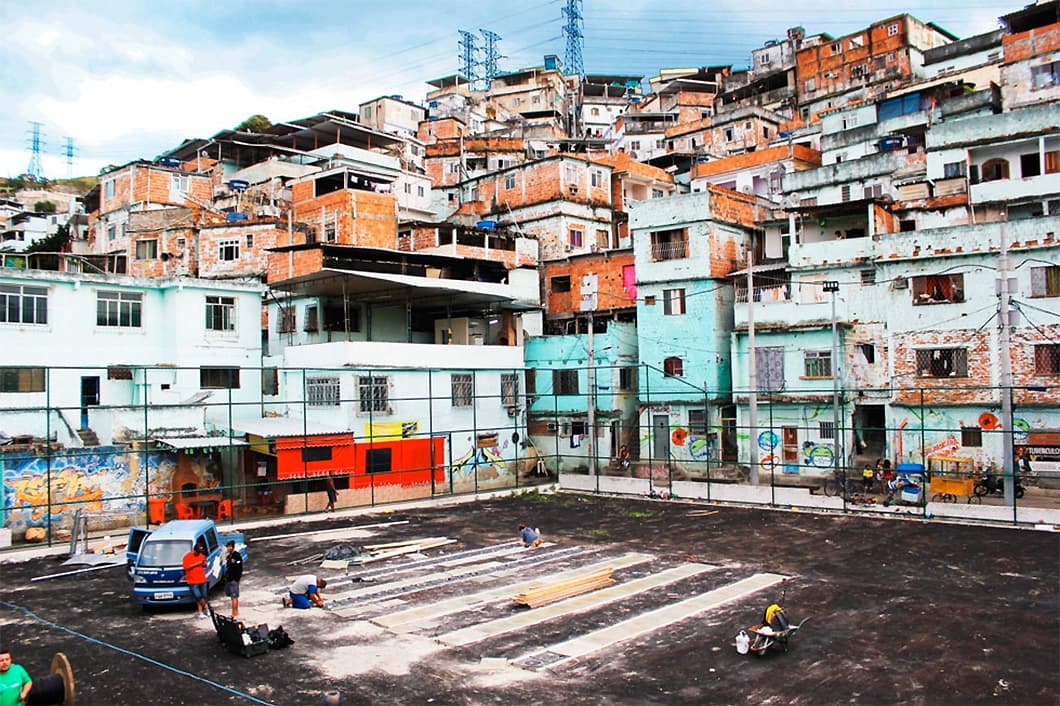Powerful Footsteps
The positive impact clean energy can have on our environment is well known. Unlike their fossil fuel-powered counterparts, electric vehicles (EVs) don't emit harmful greenhouse gases. While fracking for coal induces earthquakes, solar panels simply draw energy from sunlight, and devastating oil spills that can poison wildlife are of no concern in places where homes are powered by hydroelectricity.
Less discussed is the power of clean energy to transform communities and even our minds. However, that's exactly what tech company Pavegen is doing with its smart flooring system, which uses triangular floor tiles to transform the kinetic energy of a person's footsteps into electricity that can be used to power everything from street lamps to nearby signage.
Not content to simply provide the world with one more source of clean energy, Pavegen's CEO Laurence Kemball-Cook tells Futurism he set a unique goal for his company: "We wanted to prove it was possible to change a community through energy."
A Brighter Future
To that end, Pavegen partnered with the Shell LiveWIRE program to see if they could use their tiles to transform the lives of people living in Morro da Mineira, a Brazilian favela plagued by violence and poverty. Through the partnership, the company rebuilt the favela's dilapidated soccer field. “We installed 200 of our tiles in this pitch, and we used the energy from people playing soccer to illuminate it,” explains Kemball-Cook.
Not only is this light giving youth a safe place to socialize at night, it's also having a major impact on the community in which they live. “Shops are being created around the soccer pitch and businesses have been started," says Kemball-Cook. “This whole community now is inspired and powered through the energy of footsteps.”
The project was such a success that Pavegen replicated it the following year in Lagos, Nigeria, partnering with recording artist and solar entrepreneur Akon to place 100 tiles below the soccer field at the Federal College of Education, which was running entirely off diesel generators at the time. Now, those students have their own safe playing environment.
Perhaps even more important than the impact Pavegen's clean energy tech is having on the day-to-day lives of the people in Morro da Mineira or Lagos is how the tech might already be impacting their future.
As Kemball-Cook explained in a video recap of the Lagos project, "We're inspiring over ten thousand student teachers who will leave this college, who will go forward for the next years and years to come and inspire the next generation of African children to think differently about energy, to believe they can make change, and actually go and shape the way we use energy in the future."
As for the children in the Brazilian favela, they too will take more away from the Pavegen project than some extra hours on the soccer field. “Kids living in Brazil think becoming a soccer player is one of the only things they can do to get out of the favela. That’s the only thing they think about," asserts Kemball-Cook. "Now, this inspires the kids to be engineers.”
This interview has been slightly edited for clarity and brevity.
Share This Article
